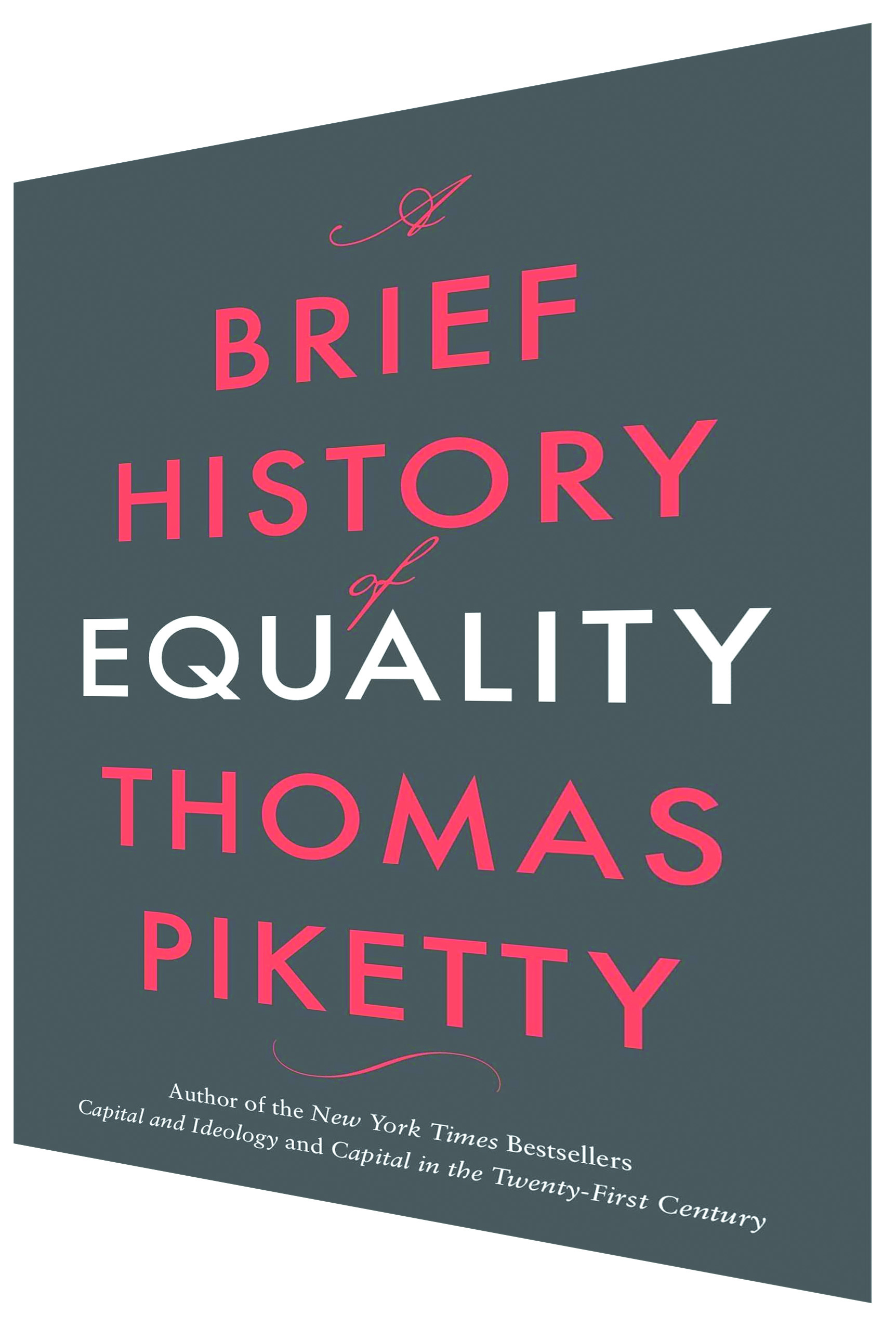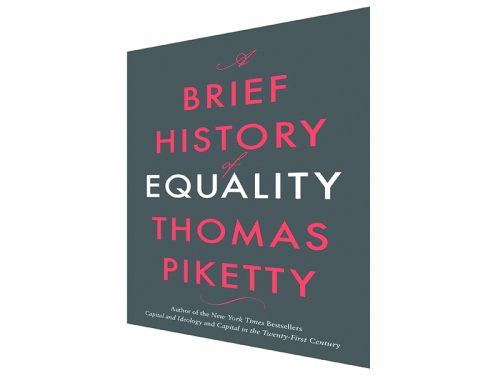Piketty’s latest oeuvre: A Brief History of Equality
A Brief History of Equality, written by Thomas Piketty, published by Harvard University Press is priced at Rs.799. Economist Thomas Piketty summarises his previous works to make his research accessible to a wider audience, writes TCA Ranganathan

Professor of economics at the School for Advanced Studies in the Social Sciences and associate chair at the Paris School of Economics, Thomas Piketty attained global fame with his best-selling Capital in the Twenty-First Century (2013), which highlighted wealth and income inequality in Europe and the US since the 18th century.
The book argued that the rate of capital return in developed countries is persistently greater than the rate of economic growth, and that this would cause wealth inequality to increase in the future. Piketty proposed improving education systems arguing that diffusion of knowledge, skills, and ideas of productivity would act as main mechanisms to lower inequality.
In 2019, his next book Capital and Ideology also became a bestseller. It broadened Piketty’s earlier scope by focusing on the sociology of inequality, experienced in various societies in history. The book’s central thesis was that inequality is not an accident but rather a feature of capitalism that can be reversed only through state intervention. It argued that throughout history, elites have tried to justify inequality by claiming it is natural and that the status quo brings stability, but these are biased excuses, shaped by self-interest. The book argued that unless capitalism is reformed, democracies worldwide will flounder.
The above two books were voluminous in size and encyclopaedic in scope. In contrast, the book under review is a pithy 244 pages presented in ten chapters in which Piketty summarises his previous works, Capital in the Twenty-First Century and Capital and Ideology to make his research more accessible to a wider audience not necessarily economists.
Much of the current discussion on inequality focuses on the period since 1980, when the benefits of growth began to accrue more narrowly to the rich than before. While discussing this phenomenon, Piketty acknowledges that there was an earlier optimistic narrative of the world’s astounding progress toward equality during the 19th century.
Life expectancy rose from 26 to 72 years and, with the spread of compulsory state-provided education, literacy rate grew from 10 to 85 percent. Slavery and colonialism, once endemic, were substantially abolished. Perhaps half the population of the developed world is now at least middle class, whereas before the 20th century there was no middle class to speak of. The right to vote, formerly restricted even in democracies to male property owners, was well on its way to becoming universal.
What prompted this progress? Piketty has a straightforward answer: the advent of progressive taxes on income and wealth, and rise of the comprehensive welfare state. Taxes reduced inequality and paid for the welfare state, which provided education, healthcare, old-age pensions and protection against severe deprivation.
In Capital, Piketty advocated a “global tax on wealth” as a possible remedy for inequality. In A Brief History, he develops the concept of a progressive increase in taxes on the wealthy. Piketty calls upon the State to increase access to quality healthcare, education, employment through the progressive implementation of taxation on the wealthiest. He also advocates “decommodification” of certain sectors that have become privatised including education, health, transport and energy.
Although Piketty favours much higher income-tax rates, policies that redistribute property rather than income are at the heart of his programme. This agenda includes reparations for descendants of enslaved and colonised people and encouraging countries in the global south to tax the fortunes of non-residents who do business there.
Cancellation of debts and a programme he calls “inheritance for all,” in which wealth taxes will reduce large fortunes and provide everyone with a financial cushion, is also on his prescription. He also wants to transfer a large measure of control over corporations from their managers and shareholders in favour of employees, and create “a system of egalitarian funding for political campaigns, the media and think tanks”. All this would result in “a profound transformation of the world economic system”.
What do Piketty’s prescriptions look like when viewed through the lens of a partially developing economy like India? His primary field of study was France, then Europe, then USA and rest of the developed ‘West’. French annual per capita income is above US $40,000 while in the US, it is $60,000.
On the other hand, India’s per capita income is about $2,000, i.e, 5 percent of the West. We are still in the process of unshackling the colonial chains imposed on us by Piketty’s world.
While he says that property owners have always exerted excessive influence on governments to create systems of “military and colonial domination”, it was third world geographies that were their playing fields. Because of these and other reasons, the ecosystem of general prosperity, innovation, growth and entrepreneurship assumed to be natural by Piketty is yet to substantially emerge in our geography. The logical question that follows is whether his prescription is relevant to our geography.
Therefore, prescriptions appropriate for the ‘developed West’ may not be relevant in current environments where low productivity agrarian systems still predominate (Indian urbanisation is below 40 percent as against 80 and above in the West) and thus, require ordinary ‘old-style development’ and ‘wealth creation’. Interestingly, this book infers that the Indian policy of securing social equity via caste/class reservations is more progressive than any measure so far adopted in the developed West.
Piketty’s conclusion that early capitalism helps improve equality in underdeveloped countries should silence those advocating rapid spread of equity in such environments and persuade them to prioritise growth over distributive justice.

















Add comment